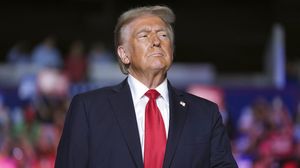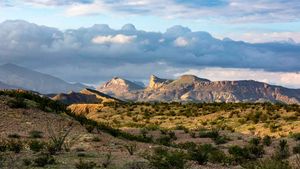The Muslim Council of Elders held a significant cultural seminar titled 'Religion and Environmental Issues: Interfaith Cooperation for Sustainable Development' during the Indonesia International Islamic Book Fair.
This seminar took place on August 18, 2024, featuring experts such as Fakhruddin Mangunjaya and Mukhlis Muhammad Hanafi, who emphasized the importance of religious guidance in addressing pressing environmental issues.
Fakhruddin, the Head of the Islamic Studies Center at the National University of Indonesia, pointed out three main environmental crises: climate change, biodiversity loss, and pollution.
He argued for the critical role religion can play by fostering moral responsibility and influencing human behavior to respect and protect the environment.
According to Mangunjaya, the impact of religion must be viewed as complementary, working alongside education, legislation, and laws for effective environmental change.
He advocated for religion to serve as an ethical reference, helping individuals take accountability and promoting mutual respect, all pivotal for sustainable practices.
Meanwhile, Mukhlis Muhammad Hanafi, the Director of the Branch Office of the Muslim Council of Elders, reminded everyone of their shared responsibility to care for the Earth, regardless of individual beliefs.
He affirmed the core teachings of various religions promote environmental stewardship, categorizing it as both critical for life and central to ethical and religious duties.
The Muslim Council has participated for the third consecutive time at this book fair, showcasing its commitment to merging faith with sustainable development initiatives.
This year's fair ran from August 14 to August 18, 2024, bringing together leading figures to discuss the synergy of religion and environmentalism.
Overall, the seminar underscored how faith can inform and motivate collective action toward environmental conservation.
It highlighted the urgent need for interfaith dialogue and collaboration to tackle ecological challenges effectively.
Such efforts are increasingly necessary as communities grapple with the impact of climate change and environmental degradation.
Religious leaders around the world are encouraged to take their moral imperatives seriously, crafting messages to inspire action.
The seminar serves as a reminder of the potential for faith communities to contribute positively to pressing global issues.
This event demonstrates how religious teachings can align with modern environmental science to help facilitate change.
The hope is to create networks of activism and awareness across faith groups, enhancing efforts toward sustainability.
The focus on environmental issues within religious contexts can also cultivate greater public engagement on these topics.
Conferences like this are pivotal for broadening perspectives on how spirituality can influence ecological practices and values.
The role of the Muslim Council of Elders reflects its mission to promote peace and cooperation across cultures and faiths, aligning theological principles with practical environmental stewardship.
Such interfaith engagements provide fertile ground for collaborative efforts aimed at reducing harm to the planet.
With increased recognition of climate change's seriousness, religious organizations are stepping up to advocate for and contribute to positive environmental change.
The seminar's discussions are likely to resonate through communities, potentially sparking broader initiatives at local and global levels.
Given the nature of the environmental crises discussed, many are hopeful this dialogue could lead to actionable plans among religious leaders and followers.
This event can be seen as part of a larger trend where faith and environmentalism intersect, paving the way for sustainable practices.
This collaboration could amplify the voices advocating for urgent action against environmental destruction.
Undoubtedly, the insights shared during the seminar will continue to inspire proactive measures within religious circles and beyond.
By placing spirituality at the forefront of conversations around the environment, participants aim to redefine how faith communities approach climate action.
With strong moral imperatives, these religious leaders may significantly influence public perception and commitment to environmental responsibility.
The seminar at the Indonesia International Islamic Book Fair serves as both a platform for education and inspiration, urging participants to reflect on their actions toward the planet.
It appears there's considerable potential for religion to impact environmental change positively.
Thus, through events like these, the hope is to expand the conversation around sustainability and make significant strides toward protecting our planet.



